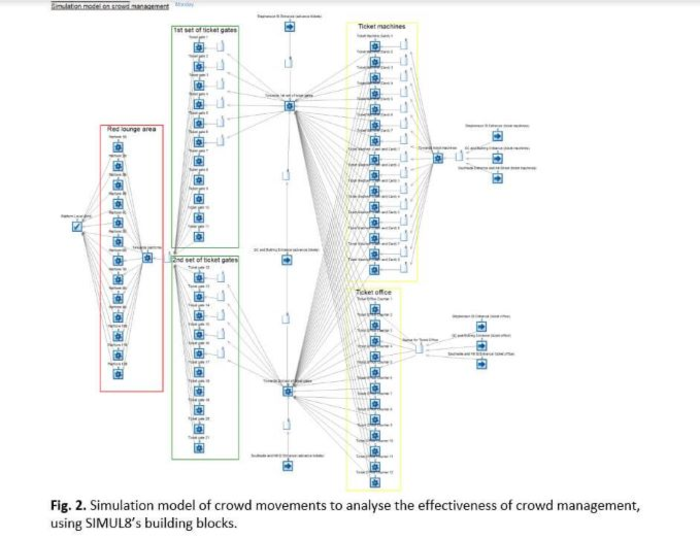Dr Marin Marinov, lecturer in infrastructure systems and sustainable engineering in the College of Engineering and Physical Sciences at Aston University, has conducted research into the rail passenger flow on the concourse of Birmingham New Street railway station prior to and during COVID-19.

Credit: Aston University
Dr Marin Marinov, lecturer in infrastructure systems and sustainable engineering in the College of Engineering and Physical Sciences at Aston University, has conducted research into the rail passenger flow on the concourse of Birmingham New Street railway station prior to and during COVID-19.
According to a report produced by the Department for Transport in 2020, pre-Covid there was an increase in passenger demand across all major cities during the peak hours. Compared to 2018 there was an increase of 2.4% in morning arrivals as well as a 1.2% increase in evening departures. In addition, the data indicates that the West Midlands region saw the highest growth of rail usage to 101 million (up by 274%) since 1997/98.
Dr Marinov used an event-based simulation model to examine data on passenger numbers and behaviour from the Office of Rail and Road and other sources. The statistics were used to calculate and make reasonable assumptions and estimates in three scenarios: evening rush-hour travel pre-Covid, pre-Covid travel but with fewer tickets machines working and travel during the epidemic in March 2020.
Not surprisingly, the results show that those passengers who had already bought their train tickets electronically are able to go through the station concourse with minimal queuing times, whereas those without tickets are more likely to be in a queue to buy their tickets in the station.
Based on the results of the study, Dr Marinov was able to put forward three recommendations which could make commuting quicker and safer. The suggestions are made in the paper Rail Transit Analysis of rail passenger flow in a rail station concourse prior to and during COVID-19 pandemic using event-based simulation models and scenarios published in the journal Urban Rail Transit.
The first suggestion is that rail companies encourage passengers to purchase train tickets on their smartphones rather than at stations’ ticket machines or ticket offices to allow them to make their way towards the platforms in less time. In all three scenarios, there are at least 20% of passengers taking longer than 15 minutes to reach the platform, which the author suggests is caused by blockages in the system such as queues at the ticket machines and ticket offices.
The second suggestion is to remove ticket gates and replace them with sensors which automatically detect passengers through their smartphones. This would help to reduce the passengers’ queuing times in the station, as well as allowing more space for passengers to maintain social distancing in the event of another pandemic. It has previously been suggested that smartphone apps could be developed that link up with the sensors to automatically charge the correct fare, decreasing the overall time spent for passengers in the station.
The final suggestion is to provide one-way flow systems on the main concourse of stations. This would make stations safer by allowing more passenger flow control, minimising the risks of overcrowding. Such a system is already in place at Birmingham New Street station’s Navigation Street concourse.
Dr Marinov said: “Railway passenger stations, especially in urban areas, need to have an effective railway station concourse, as well as good ticket facilities for passengers to use.
“The majority of passenger rail trips are made by commuters (54%) for work and education, compared to leisure and business purposes which make up 31% and 10% respectively.
“However, the National Rail Passenger Survey produced by Transport Focus, shows that commuters are the least likely passenger group to be satisfied with their overall journey from station to train facilities, when compared to leisure and business passengers.
“Opportunities to improve the crowds’ movement, along with making changes to the ticket facilities to help reduce queues, could have a positive impact on passenger satisfaction ratings, and more importantly, the safety of passengers and other users of train stations.”
Journal
Urban Rail Transit
DOI
10.1007/s40864-022-00167-w
Method of Research
Computational simulation/modeling
Subject of Research
People
Article Title
Analysis of rail passenger flow in a rail station concourse prior to and during COVID-19 pandemic using event-based simulation models and scenarios
Article Publication Date
13-May-2022




